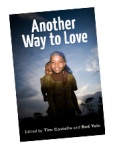In my sermon ‘Free to Love!’ I said that I believe one of the roots of our problems as humans stems from the fact that, deep down, we don’t believe that we are really loved that much. In this piece below, Selwyn Hughes says it much more eloquently that I ever could:
Carrying His own cross, He went out to what is called Skull Place….There they crucified Him – John 19:17-18
Although the love of God is clearly laid out in the Old Testament, why did humankind have to wait so long to have the message spelled out in such clear terms as John uses: “God is love” (1 Jn 4:8)? People could not see this sufficiently clearly until they had looked into the face of Jesus. In the life of Jesus is the clearest revelation that God is love.
So few of us open ourselves to the love of God. We have more fear of Him than we have love for Him. There is, of course, a godly fear (or reverence), but that is not what I mean. If we fail to comprehend how much we are loved by God, then there will be no energy to turn the machinery of our lives in the way they were meant to turn.
Whenever I doubted the love of God as a young Christian, I was told I should go to Calvary. I never quite understood what that meant until one day I complained to God that He could not really love me; if He did, He wouldn’t let such things happen as were befalling me. He gave me no answer but showed me the Cross.
And as I saw His Son dying there for me, the scales fell from my eyes and I found love for Him flowing out of His love for me. I discovered what 1 John 4:19 means: “We love because He first loved us.”
Love for God is not the fruit of labor but the response of our hearts to being loved. It is not something we manufacture; it is something we receive.










